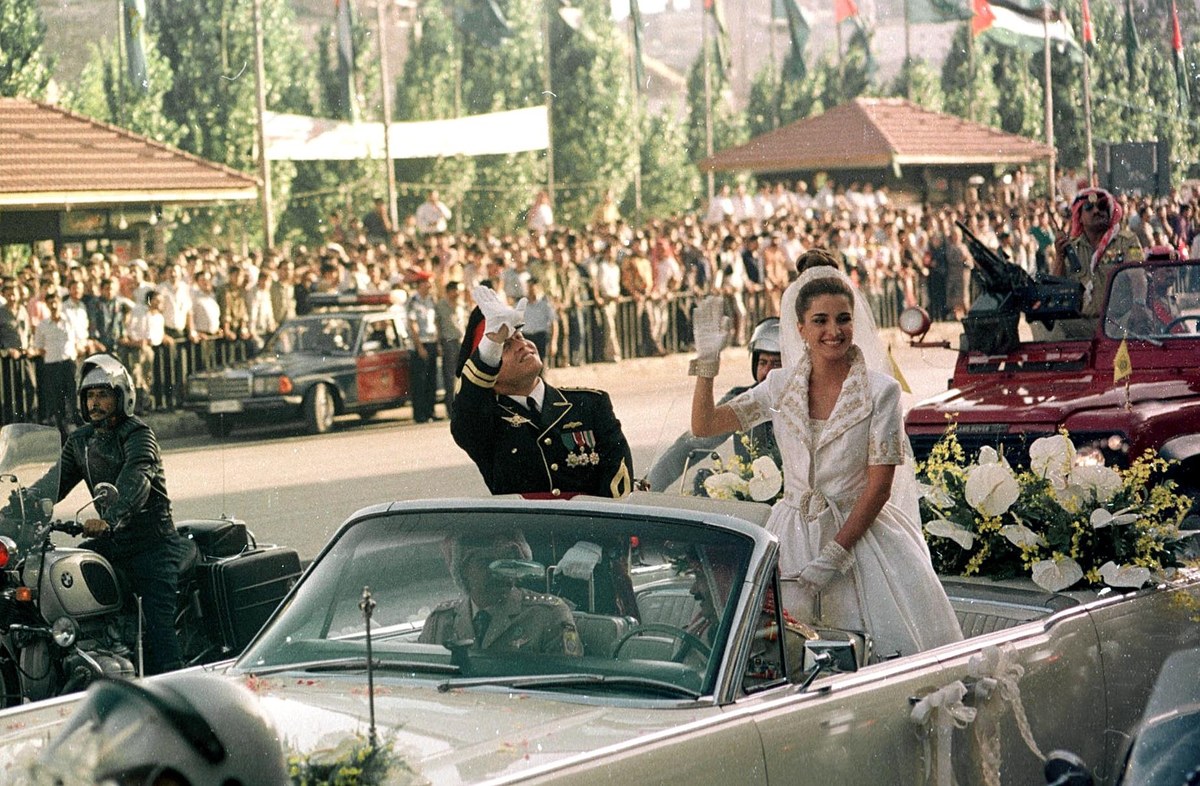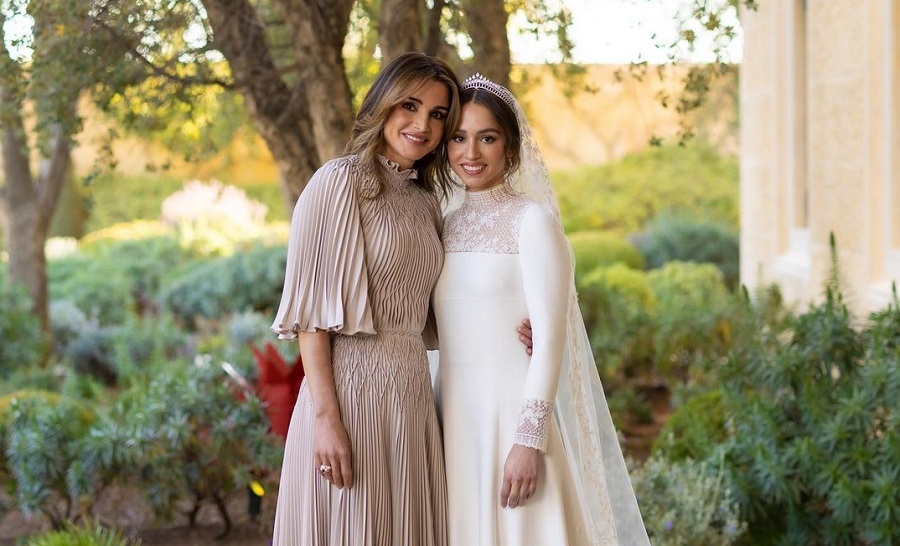AMMAN/ RIYADH: With a public holiday underway in Jordan, residents of the country are gathering to celebrate the wedding of Crown Prince Hussein bin Abdullah and Saudi Arabia’s Rajwa Al-Saif.
Public screens have been set up throughout the nation and many will also settle down to watch the live broadcast from the comfort of their own homes on Thursday.
Arab News spoke to members of the public in Jordan and Saudi Arabia to find out what they had planned for the big day ahead.
Amman-based Basel Quol, a video producer with Xinhua News Agency, said: “Families will gather in a festive atmosphere, mesmerized in front of the TV set, watching the wedding ceremonies and related events.
“For Jordanians of my generation who watched King Abdullah II’s marriage ceremony in 1993, a great deal of memories are going to re-emerge.

Crowds are expected to gather along the motorcade route today — much as they did for Jordan’s 1993 royal wedding, shown here. (Getty Images)
“I can never forget watching King Abdullah’s wedding as a child when a Jordanian army paratrooper descended from the sky and perfectly landed before then-Prince Abdullah and handed him the sword to cut the wedding cake. Such an amazing manoeuvre captivated me as a child, and it lived with me as an adult.
“Now, 30 years later, a lot of people like me are eager to witness the crown prince’s wedding,” Quol added.
Tourism expert and radio personality Naffa Nazal likened the upcoming nuptials to the March 12 wedding of Jordan’s Princess Iman and financier Jameel Alexander Thermiotis.
“I and my girlfriends were sitting in front of the television and watched the royal wedding of Princess Iman and Jameel Thermiotis and we all admired the celebrations — from the decoration to the stunning gowns.

Tourism expert and radio personality Naffa Nazal likened the upcoming nuptials to the March 12 wedding of Jordan’s Princess Iman (pictured). (Supplied)
“Similar to that, most Jordanians and expats in Jordan will be glued to the television to share the magical moment,” she said.
Nazal, who is part-Jordanian and part-Palestinian Lebanese, noted the union of two cultures that the royal wedding would bring about.
“The young couple bring energy and excitement to Jordan as Saudi Arabia is opening up to the world and so many have wondered … about Saudi culture, community, and traditions.
“As a mixed Arab, I am an advocate of mixing cultures, heritage, and ideologies,” she added.
In Saudi Arabia, Jordanian medical student Abdullah Al-Khasawinah, said he would be watching snippets of the wedding in his free time.
“I have been looking forward to this since they announced their engagement, it is an extremely exciting time for all Jordanians. I am preparing for my final exams for medical school … but I will pop in and watch bits of it during my breaks.”
Al-Khasawinah, who has traveled back and forth between both countries for most of his life, added: “Even before this wedding, Jordanians and Saudis shared a lot in common in terms of traditions and customs.
“I feel like the wedding … entices each culture to learn more about the other.”
Riyadh-based Jordanian medical student Nour Odeh said: “What’s distinctive about this wedding is that it will not only bring Jordanians together, but Saudis as well.
“Since I’m a Jordanian living in Saudi Arabia, I am overjoyed for such a union as it will bring two nations closer and will further strengthen the political and social ties that join us.”
Saudi events coordinator Shahad Samman said: “This wedding will strengthen the bonds between both countries and make people accept that if two people understand each other, nothing can stand in their way, even if you’re royal, love still exists.”
The royal wedding has also found fans beyond the Middle East. Jacqui Taylor Basker, a professor at the New York Institute of Technology who lived in Amman for 16 years, said she planned to host a special dinner for the occasion.
“I plan to host a mansaf (Jordan’s national dish) dinner on June 1 and will try to watch the royal wedding on whatever media will show it in the US,” she added.
Whether it be for political, sentimental, or sartorial reasons, Thursday’s wedding will no doubt attract viewers from around the world. Basker said: “The public always loves a wedding between a beautiful young woman and a handsome prince.”














